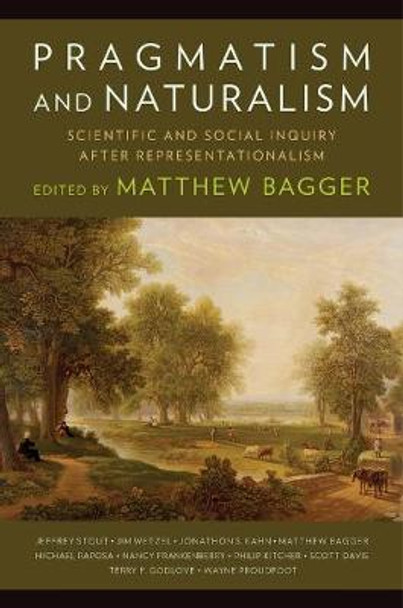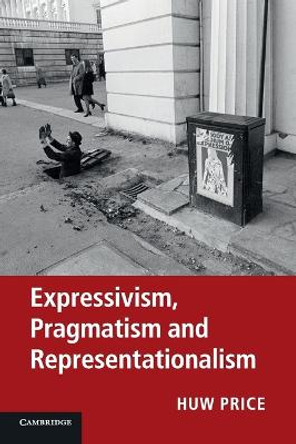Description
In Pragmatism and Naturalism, distinguished scholars examine pragmatism's distinctive form of nonreductive naturalism and consider its merits for the study of religion, democratic theory, and as a general philosophical orientation. Nancy Frankenberry, Philip Kitcher, Wayne Proudfoot, Jeffrey Stout, and others evaluate the contribution pragmatism can make to a viable naturalism, explore what distinguishes pragmatic naturalism from other naturalisms on offer, and address the pertinence of pragmatic naturalism to methodological issues in the study of religion. In parts dedicated to historical pragmatists, pragmatism in the philosophy and the study of religion, and pragmatism and democracy, they display the enduring power and contemporary relevance of pragmatic naturalism.
About the Author
Matthew Bagger teaches in the Department of Religious Studies at the University of Alabama. He is the author of Religious Experience, Justification, and History (1999) and The Uses of Paradox: Religion, Self-Transformation, and the Absurd (Columbia, 2007).
Reviews
This book is a stellar collection of many of the most brilliant and influential philosophers engaged with pragmatism and naturalism. The revival of pragmatism-after its emergence forty years ago-continues in new and nuanced ways as manifest in this gem of a text! -- Cornel West, Professor of the Practice of Public Philosophy, Harvard University
This collection of fresh and original papers dealing with pragmatism, naturalism, and religion is great tribute to Wayne Proudfoot, whose writings have inspired a generation of thinkers. Splendid essays deal with Peirce, James, and Dewey as well as with recent debates concerning democracy, the study and philosophy of religion, and the future of pragmatic naturalism. -- Richard J. Bernstein, Vera List Professor of Philosophy, New School for Social Research
This collection shows that many contemporary pragmatist philosophers, like their predecessors Peirce, James, and Dewey, are committed to varieties of antirepresentationalist naturalism, which should be distinguished as clearly from reductive physicalism as it is from absolutisms both religious and rationalist. Bagger's commentaries, like the essays themselves, are lucid, instructive, and provocative interventions in ongoing debates about the meaning and significance of pragmatism. -- James Kloppenberg, Charles Warren Professor of American History, Harvard University
For anyone interested in the nuances of pragmatic naturalism and the study of religion, this is a must-have collection. The reader learns something on every page. Matthew Bagger has done a magnificent job in gathering this fascinating array of thinkers on the subject. -- Eddie S. Glaude Jr., James S. McDonnell Distinguished University Professor, Princeton University
The contributors to Pragmatism and Naturalism address several interwoven questions, ones of great contemporary interest, and address these questions in an erudite, thoughtful, and imaginative manner. In doing so, they clarify not only the meaning of pragmatism and naturalism (no small achievement apart from all else) but also illuminate the meaning of religion itself in light of what pragmatism and naturalism mean for us today. -- Vincent Colapietro, Pennsylvania State University and the Center for the Humanities at URI
The essays in Pragmatism and Naturalism are excellent examples of the genre by top-notch scholars that speak well to each other and, without question, significantly advance the cause of pragmatism in philosophy, in political theory, and in religious studies. Bagger's essay on the elective affinity between pragmatism and religious naturalism is both conceptually clear and historically rich, and the essays by Proudfoot and Stout read as mature and polished position pieces by solidly established voices in their respective fields. -- Andrew Dole, Amherst College
Book Information
ISBN 9780231181884
Author Matthew C. Bagger
Format Hardback
Page Count 328
Imprint Columbia University Press
Publisher Columbia University Press








